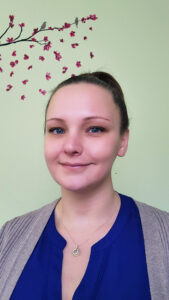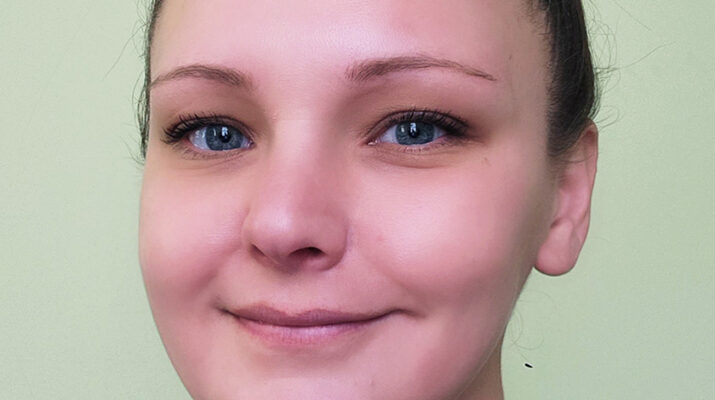By Deborah Jeanne Sergeant

Currently serving as director of the prevention program at The Community Place of Greater Rochester, Inc. in Rochester, Rachel Mahar had always been interested in this field.
A Canandaigua native, she remembers when pain pills became a popular recreational drug.
“I saw a lot of people go through horrible things and I wanted to join a field where I could help those people and their families,” she said.
After completing an associate degree in addiction counseling at Finger Lakes Community College in 2007, she worked in treatment at Finger Lakes Addiction Counseling and Referral Agency, headquartered in Clifton Springs. Eventually, she decided that prevention was a better fit for her. She began working at Community Place in 2010 as a prevention counselor.
“I had never done prevention before, so it was very different in terms of working with youth in the city of Rochester with the goal of giving them the skills to refuse the pressure to use drugs or alcohol,” Mahar said.
Her early experiences there convinced her she made the right move. Mahar finished a bachelor’s in human services through Empire State College in 2012 and passed an exam through the New York State Office of Addiction Services and Supports (OASAS) to become a credentialed prevention professional. As she progressed in her experience and knowledge, she received a promotion to prevention manager in 2016 and this year to director of prevention.
In the 1980s and ‘90s, prevention was all about telling youth to say no to drugs and exposing them to the negative outcomes of substance abuse through testimonials and graphic images.
Prevention has changed a lot since then.
“Prevention uses a framework to use evidence-based curriculum, programs that have proven efficacy of having a positive impact on the individuals you’re delivering it to,” Mahar said. “We want to address the risk factors adolescents are facing and help them build skills to overcome those, like decision making and choosing the right friends.”
These programs can vary by community. For some communities, the program must address the effects of witnessing violence so that youth build resilience and do not choose to use substances as a coping mechanism.
Mahar said that a 2019 youth risk behavioral study in the Rochester City School District indicated that 30% of respondents had witnessed someone being stabbed, beaten or shot. Teaching young people healthy ways to cope with that trauma can help them resist drugs and alcohol.
Mahar said that the pandemic caused an uptick in marijuana abuse and also emotional difficulties as children began adjusting to going back to school. Many have needed additional emotional support in this transition.
“It’s still hard to get them in the rhythm of how to behave in school and how to better themselves,” she said. “This also affected the adults in their lives.”
Although the pandemic did increase access through telehealth, which health insurers still cover, Mahar believes that “in-person contact with a counselor is really beneficial for most young people,” she said.
Since she started in the field, Mahar has observed a shift from addressing substance use with teens to beginning at the kindergarten level. But it’s not so much education about drugs or mental health but “focusing on enhancing the youth’s skills and helping them with things they might not even realize they need help with.”
Mahar hopes to continue her education with a master’s degree, as it’s been a decade since she attended college. She also hopes to continue to grow the programming at Community Place to “reach as many youth as we can,” she said.
“I like the feeling that you are making a difference, even if you reach one student. It’s better than zero. I like seeing my counselors come back with energy and feeling they’re making an impact on the community.”

